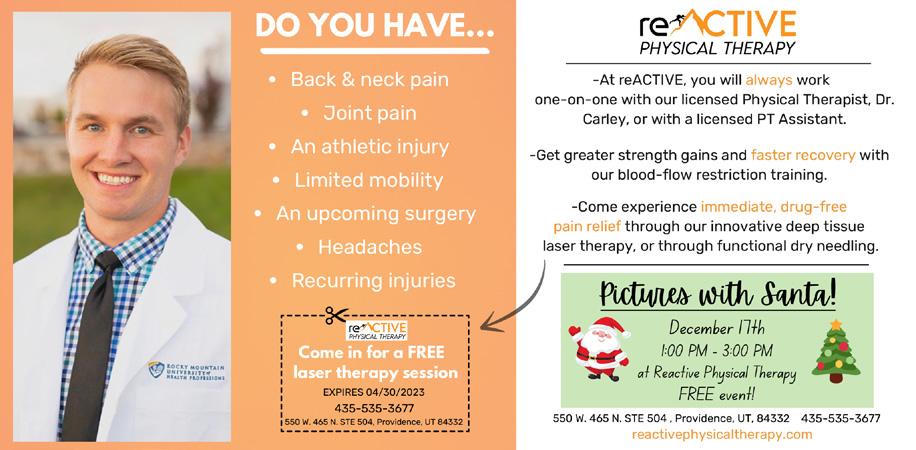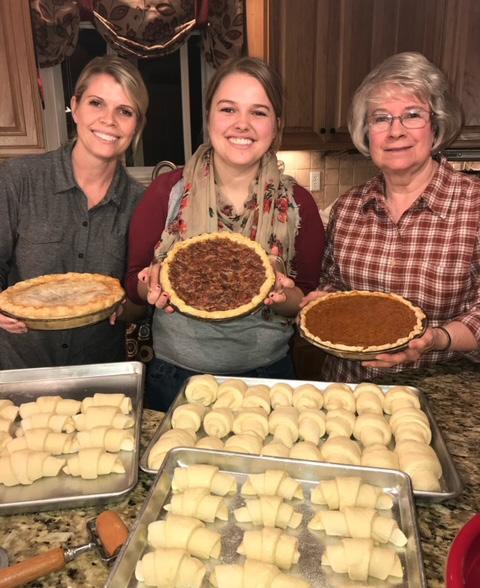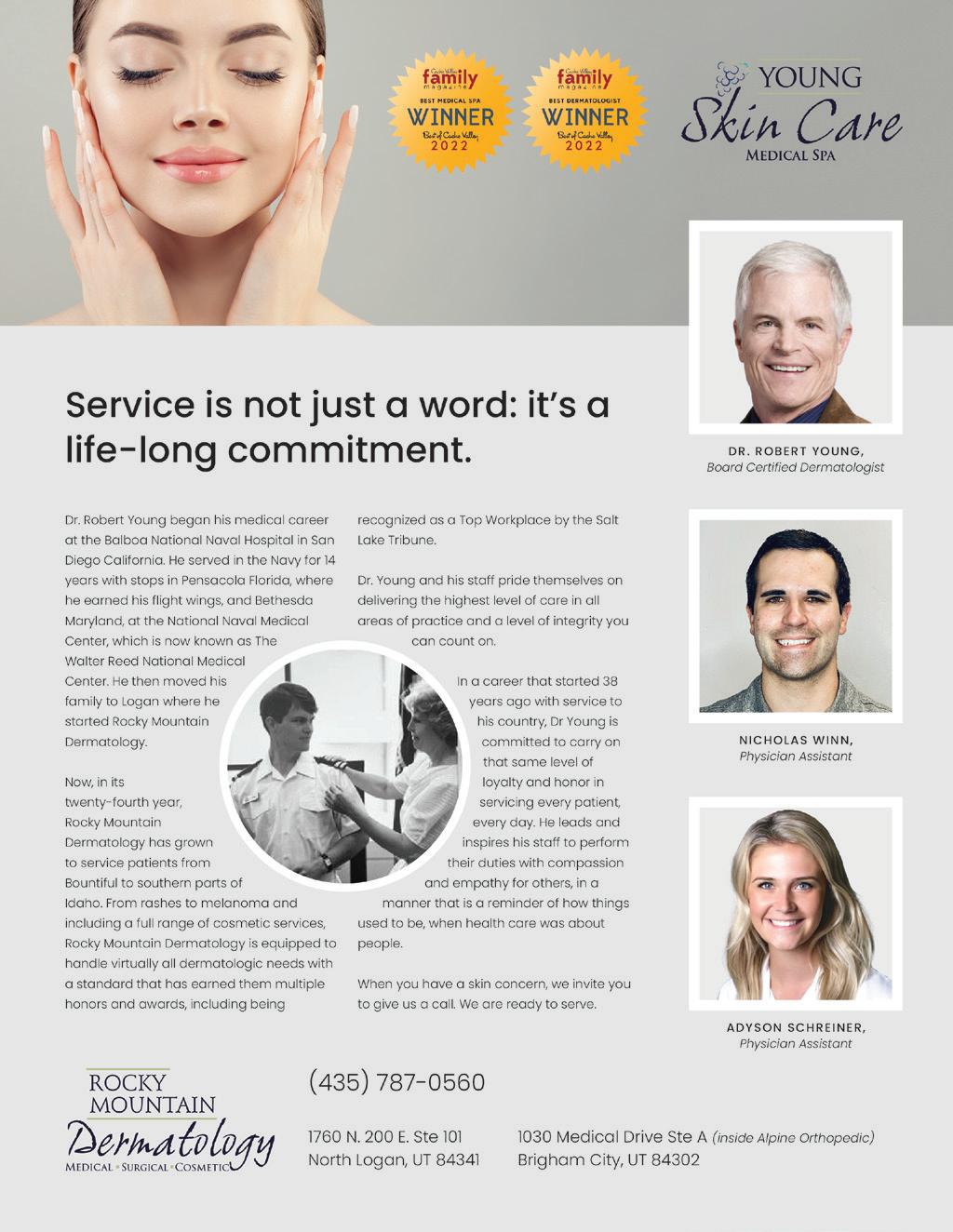
4 minute read
Was Being a Parent Easier a Generation or Two Ago?
FACT CHECK
LEARN FROM THREE GENERATIONS OF CACHE VALLEY MOTHERS ABOUT HOW THINGS HAVE CHANGED — AND STAYED THE SAME
Advertisement
KATE NEELEY contributing writer
Connie Paskett, 76, of Smithfield, a loving mother and grandmother, raised her children in a different time than her daughter Natalie Straatman, 51, of Young Ward, or her granddaughter Alisha Wilkins, 28, of Nibley. Think for a moment what life will be like for Alisha’s 3-month-old daughter Addy when she gets old enough to be a mother.
Some might say things about the past like, “In simpler times it was …” But were they really simpler? Maybe. Easier? Perhaps in some ways. And yet harder in others.
These women answered questions such as: • “What do you think sets each generation apart?” • “What can you learn from different
generations that might influence you as a parent?” • “If you have children, what was it like when your first child was born?” • “If you’re a mother, what was your birth experience? Was it in a hospital, a home, somewhere else?”
Read on for a glimpse into three women’s experiences over three generations.
For Connie, more than 50 years ago, her first pregnancy was going well up until closer to the delivery when she developed high blood pressure and preeclampsia.
When the doctor took a look at her, she recalls, “We didn’t have insurance, so a hospital stay would be expensive. The doctor told me, ‘if you are good and stay in bed, then you can stay home.’ I stayed in bed, so I got to stay home.”
Not long after that, she had a show of blood and ended up delivering a stillborn baby boy they named Chad. As her daughter Natalie relates, “They didn’t let her see or hold the baby.” Her husband drove the tiny baby’s body straight to the cemetery to be interred. She didn’t have a chance to see or hold the child she carried full term.
In contrast to her story, Connie’s granddaughter Alisha similarly developed high blood pressure earlier this year and preeclampsia later in the term of her first pregnancy, but with the technology offered to her, her experience was continued on next page …
… continued from previous page different. When she went in for a routine checkup before she was full term, she was told that they needed to deliver the baby that day.
She was taken in for an emergency c-section and then her brand-new daughter was taken to the NICU for one month for needed care until she was ready to go home. Now Addy is home with her mom and dad, growing and developing like any other baby.
When Alisha’s mother Natalie delivered her 28 years ago, she was very fortunate to have a smooth pregnancy and delivery for the most part. Alisha’s dad wore scrubs in the hospital room, she pushed for three hours, and although Alisha arrived two weeks past her due date, she was a healthy, beautiful baby girl.
Alisha is the eldest of five girls in her family, and Natalie has fond memories of raising her children in the time she did. Her day-to-day experiences included things like feeding her babies out of baby food jars, going to the park and store, and spending time with other mothers like her, who spent the majority of their time caring for children at home.
Alisha anticipates that it is likely her daughter will grow up differently than she did, seeing more families with both parents working for income because current lifestyle and cost of living make that more of a necessity.
Natalie raised her family on a farm. As little girls, they cared for gardens and raised animals. Natalie feels satisfied that it gave her children opportunities to learn how to work and exposed them to natural patterns in the world around them.
She believes that connection to nature is a healthy thing and that perhaps the generations today are missing out in some ways because they’re so connected to electronics. However, Natalie can also see the benefits of being able to stay in contact with each other in different ways like social media.
Alisha can see that for baby Addy. She’s glad to know that Addy is born into a time when people are more accepting of others who are different and there is more information available about many things, including mental health. Still, she is leery of exposure to vast amounts of unconfirmed information.
Connie’s generation raised children in a world where she felt that most everyone knew and accepted right and wrong. She feels that people today are more conflicted and confused about what’s right and wrong.
There are certainly different and widely accepted ways of living in different generations. However, Connie, Natalie, and Alisha all can see that there are things that remain in every generation.
As a great grandmother, Connie says, “Parents are parents, and kids are kids.” According to Alisha, there will always be some conflict with the previous generation, “But that’s how we learn, change, and grow over time.” Kids and parents will always learn together about respect, kindness, communication, forgiveness, and other values, according to Natalie.
There’s bound to be change in the world for baby Addy as she grows, but perhaps what really matters for every generation will stay the same when she has the opportunity to become a mother, and that is motherly love and concern. Three generations of mothers: Natalie Straatman, Alisha Wilkins, and Connie Paskett share their thoughts on motherhood.













